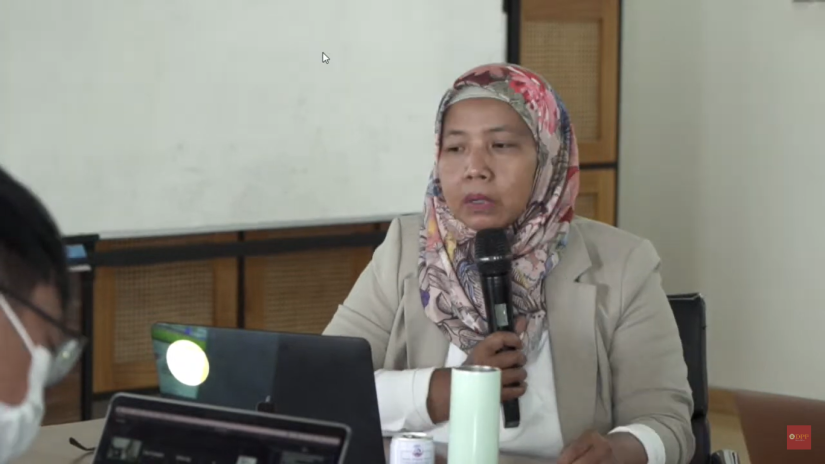
Yogyakarta, September 9th 2022─The Department of Politics and Government of FISIPOL UGM held a public lecture entitled “Politics of Clean Water Supply: Seeing Community Participation in the Framework of Citizenship”. This public lecture was moderated by Dias Prasongko, a researcher at the Research Center for Politics and Government (PolGov) UGM with the main speaker Amalinda Savirani, a lecturer from the UGM Faculty of Social and Political Sciences.
Amalinda stated that studies on water citizenship have actually been developed. In Indonesia, unfortunately, studies on water citizenship have not been widely developed. “This makes studies on water citizenship always open to academic research,” Amalinda explained.
The material dimension of water is an important element to relate it to the framework of citizenship. “As part of the ecosystem, water has a great influence on human life. This is the material dimension of water,” Amalinda explained.
Furthermore, according to Amalinda, the material dimension of water will be felt if we look at one example case, namely the decrease in groundwater. “The decrease in groundwater reflects that in fact there are some levels of groundwater that should not be taken, but still taken,” Amalinda explained. This has affected several aspects of human life, such as the sinking of the city, the decline in water quality and quantity, and social conflicts due to the struggle for access to water.
Another dimension of water that needs attention, according to Amalinda, is its invisibility. “The water is under the ground, and tends to be invisible, this makes us rarely see water as a serious problem,” Amalinda explained. However, although it tends to be invisible, water will become a problem when humans are hampered in their daily activities due to a lack of water. This condition confirms the material dimension of water even though it is invisible.
There is a tendency that water is considered an individual affair. According to Amalinda, this is due to the invisible nature of water. “People use water more for household purposes,” Amalinda explained. The notion that water is an individual matter makes mobilizing and organizing masses to demand the right to water difficult.
Furthermore, according to Amalinda, the lack of attention paid to water problems makes the demand for the right to water become less. In fact, according to Amalinda, water is a basic right. “There are so many demands for free education or health, but very few demands for free water,” Amalinda explained.
